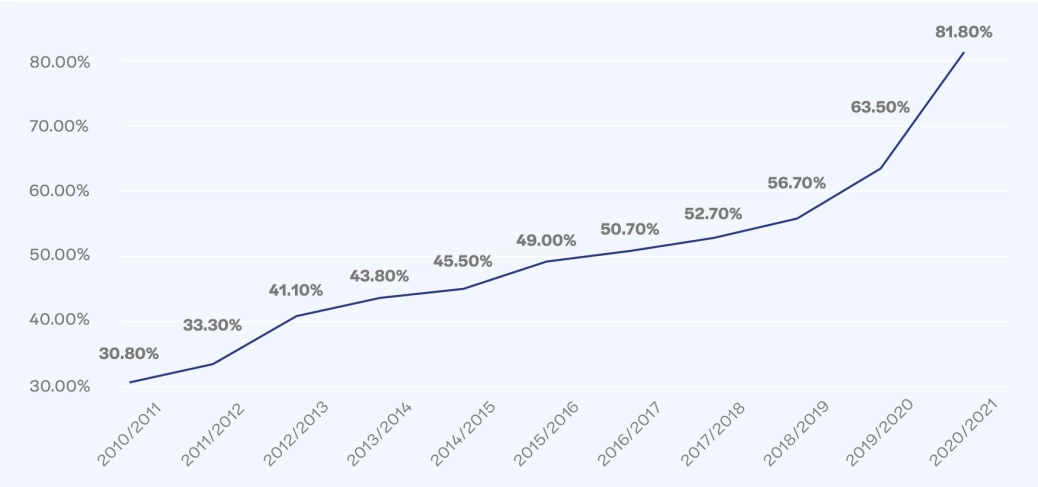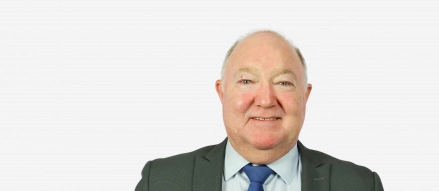
Borrower beware: SA needs to flatten its debt curve
Borrower beware: SA needs to flatten debt curve
Heading for a fall
Tertius Troost, Tax Manager at Mazars in South Africa said: “We talk a lot about flattening the COVID-19 curve, but government must also focus on flattening the debt curve. Debt is spiralling out of control.
it started at a reasonable 30% in 2010, and is now expected to breach 80% in 2020. We’re heading straight for a debt trap; it’s like paying off your house with a credit card.”
(Debt: GDP (2010 – 2020))
Bernard Sacks, Tax Partner at Mazars in South Arica, shares this sentiment. “In 2009, every Rand the government spent bought us R1.60 in GDP. Now Mboweni is saying that every Rand in government spend yields less than R1 in GDP. In other words, we’re getting poorer and poorer, and more and more indebted,” he said.
He went on to say that government needs to find a creative way to increase income to facilitate
increased spending. “Clearly government can’t spend itself out of the crisis.”
Focus on growth rather than spend
Mike Teuchert, Tax Partner at Mazars in South Africa, added that government should orientate itself around growing the economy. “We need to see a mindset change from the government that it’ll focus less on social spending and bailing out failing
state-owned enterprises that aren’t contributing to growth, and more on ways in which it can foster economic growth.”
One of the ways government could achieve this is
by lowering taxes, especially since government has recognised that raising taxes is not the answer to the economy’s problems.
“It’s good that the Minister has publicly aired the view that tax increases are not the most effective means to generate revenue and that they can
be detrimental to GDP,” adds David French, Tax Consulting Director at Mazars in South Africa.
Sacks said: “It sounds counter-intuitive that you’d want to reduce taxes, but the reality is that over
time, this is what will stimulate the growth we so badly need.”
On the bright side
It wasn’t all bad news though.
Teuchert highlighted that the shortfall in tax revenue could have been worse. “The R312.8 billion gap in tax revenue could have been a lot worse. It’s quite close to government’s previous estimate of R300 billion, so at least there are no surprises there,” he said.
Meanwhile Althea Soobyah, Tax Consulting Director at Mazars in South Africa, is encouraged that there appears to be progress on efforts to investigate the R3.5 billion in tenders that were improperly awarded during the national lockdown.
The freeze on state wages over the next three years was also positive news, but there are doubts as to how government will achieve this and what impact such a move could have on service delivery.
Sacks predicts government may be forced to reinstitute a voluntary redundancy package. “It’ll be an unpopular but necessary measure,” he said.
“The public sector has to come to the party now. We’re all in this canoe together and it’s time we all play our part in paddling it to shore.”



